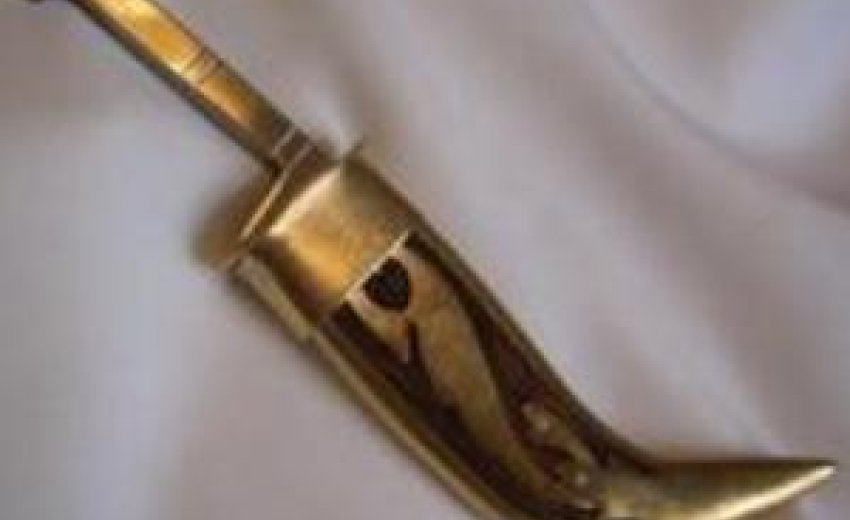 |
| A Kirpan, the ceremonial sword worn by Sikh devotees. Photo / Supplied |
The Human Rights Commission has been asked to clarify whether a Sikh student should be allowed to wear a ceremonial dagger to school.
The commission refused to reveal further details but said two schools had also contacted it for advice on how to handle requests to wear the daggers.
Sikh Society spokesman Daljit Singh estimates more than 50 children and a few teachers wear the daggers, called 'kirpans'.
He has been involved in discussions about pupils at schools in Auckland, Hastings, Hamilton, Tauranga, Te Puke, Wellington and Christchurch.
The knives are one of five key symbols of faith for male and female Sikhs and must be worn in a cloth bag under clothes at all times. They are "not a weapon" and are only ever used to "fight for good", said Singh.
He said New Zealand had become increasingly multi-cultural and schools had to understand the issue.
A mother of boys aged 13, 14 and 15, who wear kirpans to school in South Auckland said the 12cm blades were under a shirt and "not hurting anyone". She visited the schools to explain the significance of the knives, convincing staff they would not be used to hurt others.
Peter Gall of Papatoetoe High School, which has a 41 per cent Indian roll, said people shouldn't make a big deal about the issue.
David Ellery, head of Somerville Intermediate, in Auckland's Howick, said a family seeking to enrol their child last year asked if the child could wear a 'kirpan'.
The school sought advice from the Sikh community, Ministry of Education and other schools but the family decided not to go ahead with the enrolment.
Rawiri Brell from the Ministry of Education said what students wore at school was a matter for individual boards.
Education law expert Patrick Walsh said any school that received a request to wear a 'kirpan' should investigate if it related to a core religious or cultural value, if there were any health and safety concerns and whether the request was outrageous or rebellious.
Auckland-based youth law senior solicitor John Hancock said he dealt with about six disputes between students and schools over cultural or religious issues a year.
He said schools had to reflect their communities, which were becoming more culturally diverse.
